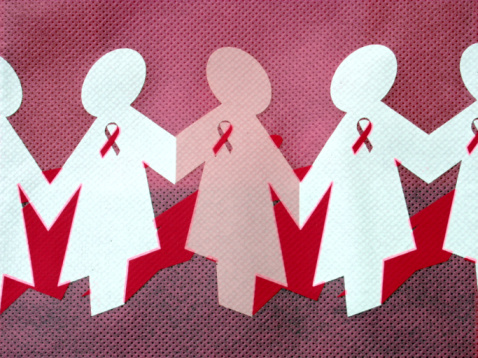
However, prevention can also begin in another place – education about common risks associated with breast cancer, as well as exploration of positive lifestyle changes known to reduce the risk of cancer, are critical when considering whether the path of surgery is right for you.
BRCA Gene Mutations and Breast Cancer
BRCA1 and BRCA2 are tumor suppressor genes in humans. A hereditary link to ovarian and breast cancer has been found when there is a mutation in either of these genes. If a woman has inherited one of these gene mutations, it is likely that she has multiple family members that have been diagnosed with ovarian and/or breast cancer, and her risk of developing these types of cancer is greatly increased. Additionally, the risk of developing other cancers is also increased when this gene mutation is present. A blood test can determine if there is a mutation present in the BRCA gene. If a gene mutation is found in the BRCA gene, there are options available to women for prevention.
Breast Cancer Prevention Strategies
Waiting and watching may not be a breast cancer prevention method, but it does help to diagnosis breast cancer in the earlier stages where the chance of successful treatment is the highest. For better prevention, screening methods for breast cancer includes mammograms and breast exams. In patients that have BRCA gene mutations, magnetic resonance imaging (MRI) may also be an option.
There are certain modifiable factors that have been associated with an increased risk of breast cancer in those with BRCA gene mutations. These higher risk factors include obesity, an inactive lifestyle, increased alcohol use and an increased consumption of dietary fats. Avoiding these risky behaviors is a great prevention method that may also reduce risk of breast cancer.
Drugs for Prevention of Breast Cancer
A U.S. government-backed panel is stressing that women who are at a high risk for breast cancer should be educated about the drugs that can be used to help reduce their risk of developing the disease.
According to the U.S. Preventative Services Task Force (USPSTF), tamoxifen and raloxifene are two drugs that work by blocking the effects of estrogen on breast tissue, which helps to reduce the chance of hormone-related cancers. The USPSTF conducted a review of tamoxifen and raloxifene and found that they reduced the risk of breast cancer in women by 30-56%.
However, there are significant risk factors associated with these two drugs. According to research published in the Annals of Internal Medicine, it may result in a significant increase in the risk of blood clots. Additionally, tamoxifen increases the risk of endometrial cancer and cataracts. Interestingly however, the studies that have been conducted regarding the effectiveness of these drugs for the prevention of breast cancer did not look at women who had BRCA gene mutations. Due to the serious side effects that these drugs carry, doctors must carefully weigh the benefits and risks for individual circumstances before prescribing them to women who are at high risk of breast cancer.
Preventative Surgery
Prophylactic surgery involves removing as much at-risk tissue as possible; this can include a mastectomy (single or double). It’s important to remember that because it’s impossible to remove all of the at-risk tissue, having preventative surgery by removing one or both breasts does not guarantee that a woman will not be diagnosed with breast cancer at some point in her life, it just reduces the risk.
There are many options for women who are at a high risk of developing breast cancer and research is continually being conducted to develop additional prevention options. It is vital that a woman seriously consider all of the options that are available before making a life-changing decision. Additionally, it is important for women, who have a high risk for developing breast cancer, to have a strong emotional support system for preventative measures or during their breast cancer journey.